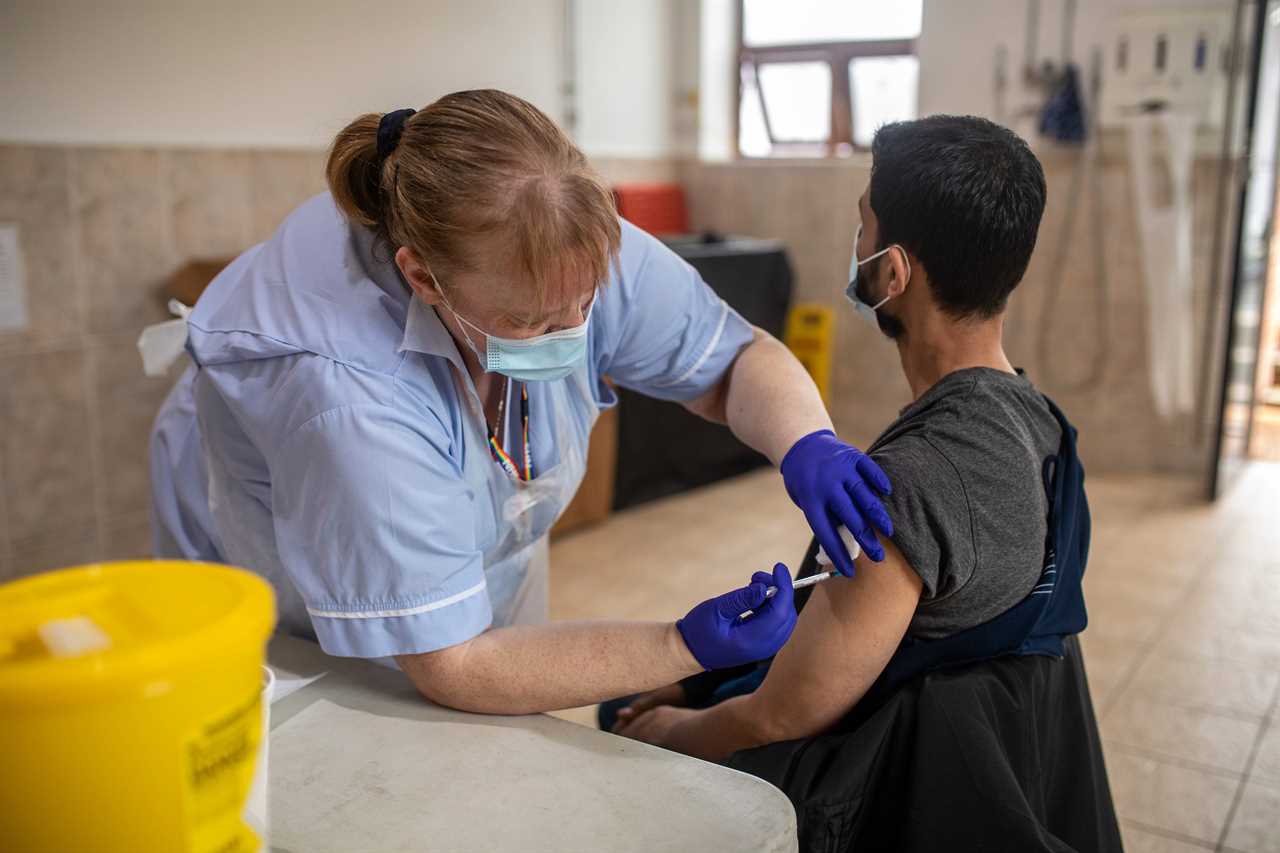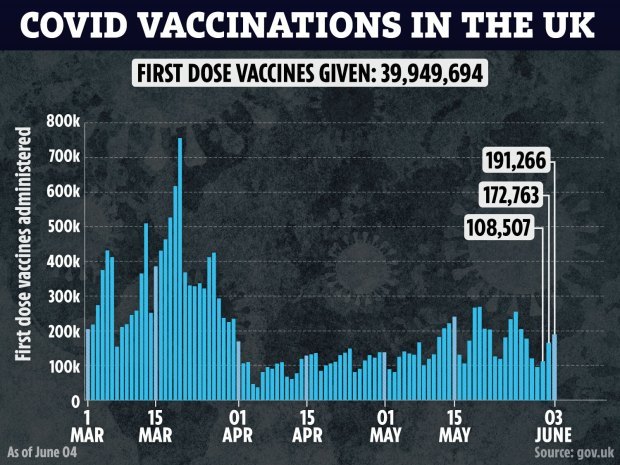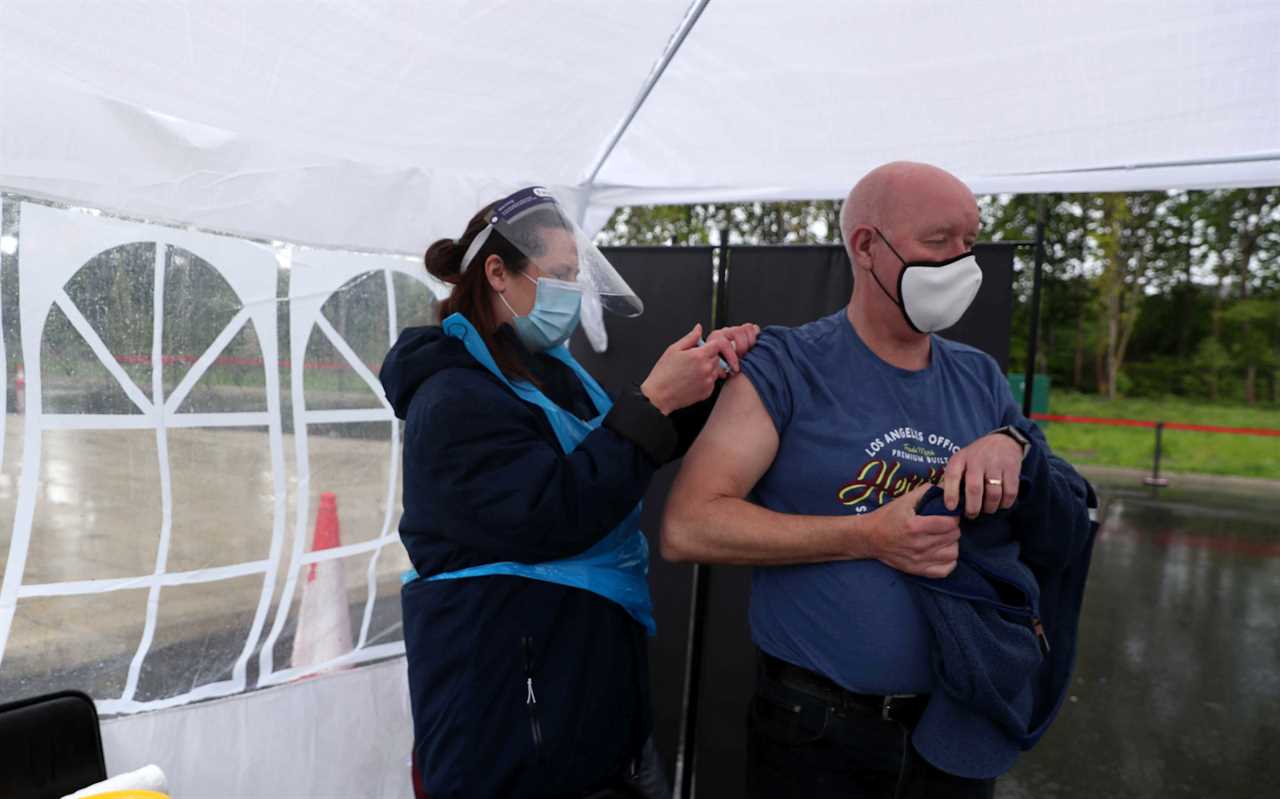COVID vaccines have “broken the chain” between catching the virus and becoming seriously ill, an NHS chief said today.
Chris Hopson, the chief executive of NHS Providers, also warned the new Indian variant will “spread even faster” if lockdown restrictions are lifted on June 21.

Read our coronavirus live blog for the latest updates

But the expert said the number of people in hospital with the variant was not increasing “very significantly”.
And those in hospital in hotspot Bolton, which has the highest number of cases of the Indian variant in England – are younger than seen previously in the pandemic.
Mr Hopson told BBC Breakfast: “The people who came in this time round were actually a lot younger and were a lot less at risk of very serious complication, less at risk of death, and what that means is that they were less demand on critical care.
“What we think we can start to say now, based on that experience, is that it does look as though the vaccines have broken the chain between catching Covid-19 and potentially being very, very seriously ill and potentially dying.
“There were very, very few people who have had those double jabs and had been able to have that build-up of protection after those jabs.”

Boris Johnson is battling to keep his pledge to lift the rules completely on June 21 – the final phase of his roadmap.
But cases of the Indian variant of the virus have surged – with infections rising 50 per cent in a week.
Data suggests the mutation is twice as likely to cause hospitalisation, leaving this month’s Freedom Day hanging in the balance.
Trending In The News revealed today how a secret plan is being worked on to delay lockdown lifting by two weeks.
Ministers and officials are working on contingency plans to move “Freedom Day” to next month, as well as retaining distancing and limits on fans in stadiums – potentially plunging the Euros into chaos.
Dr Adam Kucharski, an epidemiologist at the London School of Hygiene and Tropical Medicine, today warned the Indian variant could see a “big number” of people admitted to hospital.
He BBC Radio 4’s Today programme there were a “number of concerning signs” following early evidence that first dose vaccines are not as effective against the new strain.

Dr Kucharski, a member of the Scientific Pandemic Influenza Group on Modelling (Spi-M) Government advisory panel, added: “I think it is particularly this increase in transmission that is potentially going to cause us considerable problems.
“We are getting estimates now firming up that we are looking at something potentially 40-60 per cent more transmissible than the B.117, the Kent variant that was dominant.
“And that means that infections are going to really come at us quite fast and we are seeing that in the cases now.”
Of the 12,431 Indian variant cases so far confirmed in the UK, 10,797 are in England, 1,511 in Scotland, 97 in Wales and 26 in Northern Ireland.
In England, the cases are spread across the country, and the most affected areas include Bolton in Greater Manchester (2,149 cases), Blackburn with Darwen in Lancashire (724), Bedford (608), Leicester (349), Manchester (278) and Birmingham (223).
It comes after a Public Health England report showed people who tested positive for the Indian variant – also known as the Delta variant – were at 161 per cent more risk of needing hospital treatment within 14 days.
And experts warned the Indian Covid mutation could be 100 per cent more infectious than the Kent variant, which caused the country to lockdown in January.
The “Nepal variant” found in Britain – a mutated version of the Indian variant ripping through the country – has also sparked concern.
And the crucial R rate is also as high as 1.2 according to Sage — meaning the virus is up again.






